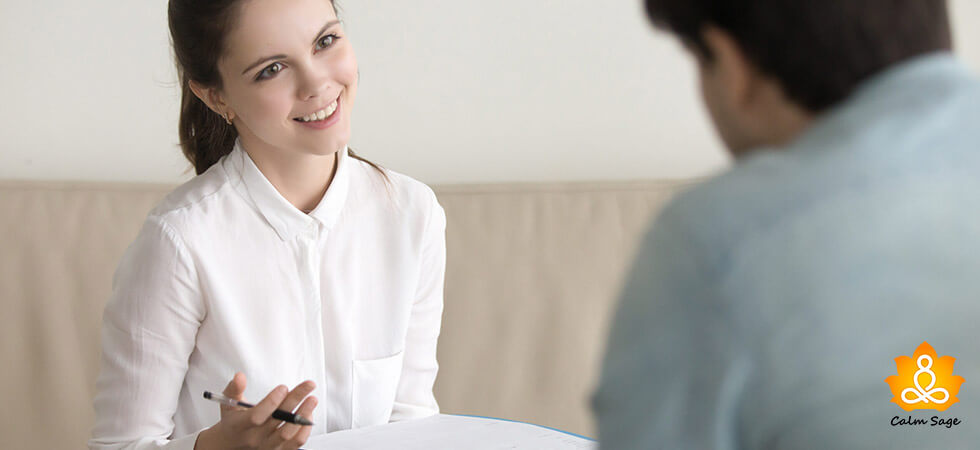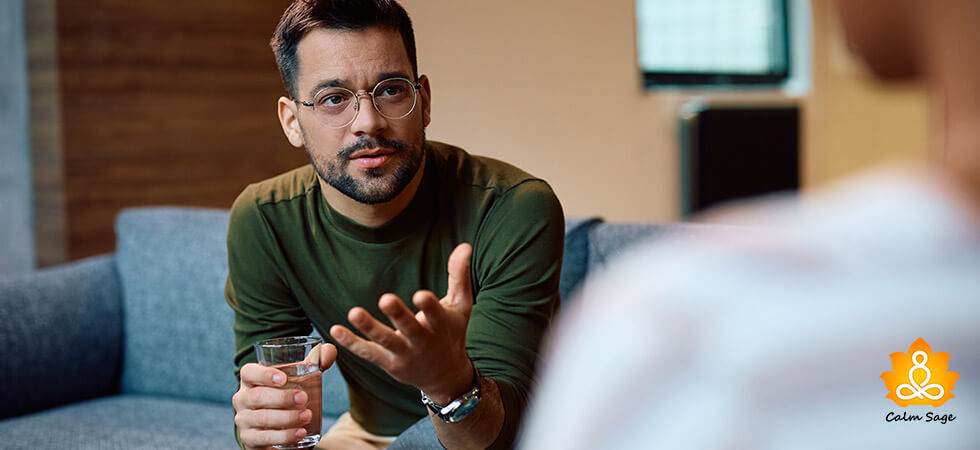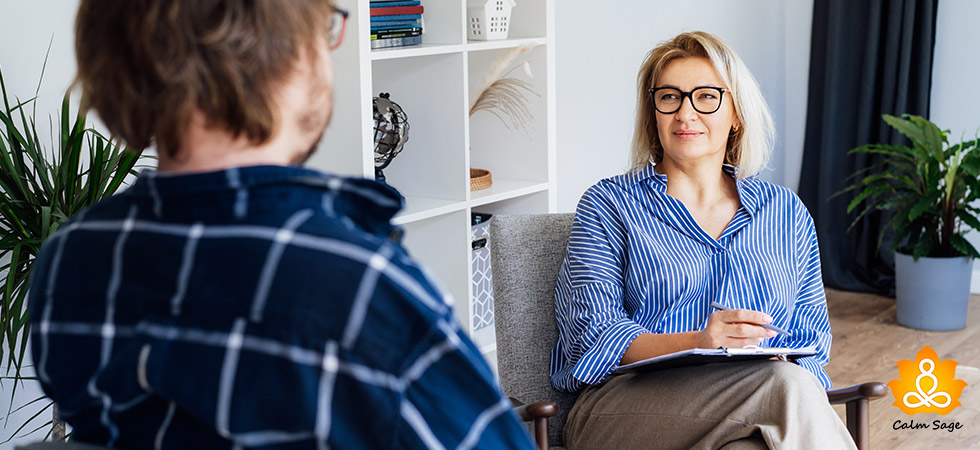Your First Therapy Session Guide | Everything You Need To Know

Are you going to your first therapy session? Awesome! I can’t be any proud of you.
We hope that you have booked an appointment for your online or telehealth therapy session and are already feeling pumped up to begin the journey of self-discovery, healing, and more.
While you are gearing up for your first session did you wish that someone could guide you through your first therapy session? Trust me, it’s okay to feel this way! I too had the same feelings while taking and giving my first therapy session! In fact, this could be your first step in seeking help from professionals.
So, coming from my personal and clinical experience, and backed with research here is a mini-guide for your first therapy session. This mini-guide for your first therapy session is useful for both in-person therapy and online therapy.
First Therapy Session Guide:
1. Be HOPEful
The first and foremost thing for you to do in your first therapy session is to be HOPEful. Where HOPE stands for:
Honest:
As the old saying goes… “Never lie to your doctor,” it applies to therapy and therapist too. Your therapist is here to help you through the challenges that you are facing. Until and unless you are not honest with them, the root cause will remain unidentified. So, be honest! If at any point you don’t feel like sharing something just be honest and tell the therapist that you are not comfortable sharing it as of now.
Open:
Be open about your needs and expectations from the therapy from the first session onwards. This will ensure that there are no discrepancies later, making your therapy session smooth. Don’t worry about your secrets being spilled, the therapeutic session is completely confidential. So, rest assured and be open with your communication.
Punctual:
No the therapist won’t judge you for being late! But, the agenda behind being punctual is to get that extra time for you to think clear and straight before entering the therapy room. If you are on time you won’t have that “I am late” look on your face and neither will you be anxious before starting with the session. Being on time will give you a window to cool down.
Expressive:
Express yourself freely to the therapist. If you feel like crying at any point (even on the first day of the session) just do it. Don’t hold your emotions, thoughts, and feelings back. With you being expressive the therapy success is guaranteed.
To put it in a nutshell, by being HOPEful you will be able to make the most out of the therapy. So, just bomb your first therapy session by being honest, open, punctual, and expressive.
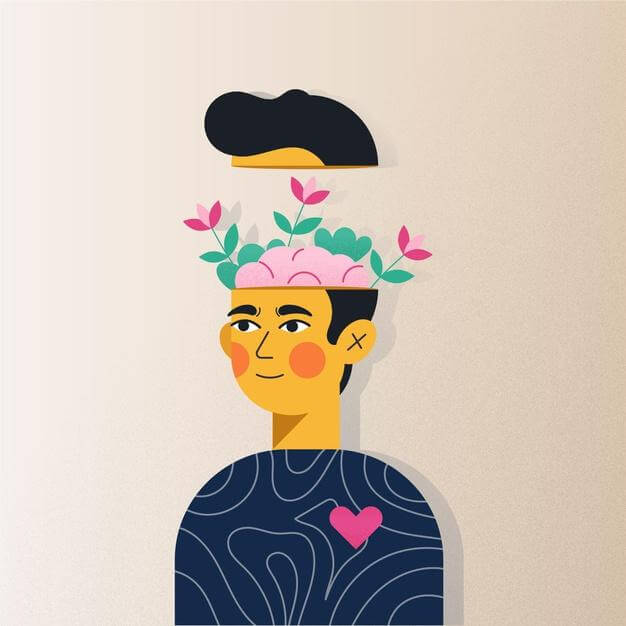
2. Ask Questions (Don’t Restrain Yourself)
The best to accomplish the first point, that is, to be HOPEful in your first session is to ask questions. By asking questions to the therapist you clearly show that you are being honest, open, and expressive.
One common myth that many people hold is that “If I will utter anything random I might look stupid” but that’s not the case. The therapist won’t judge you (ever), so please keep this worry packed at home and ask whatever comes to your mind, don’t restrain yourself. Trust me your therapist will be happy to assist with any questions or concerns popping in your head! Remember in a therapy session there is no such thing as a bad question.
But, if you don’t know where to begin from here is a question pool for you to begin with.
Remember that a therapy session is two-way communication. While the therapist will ask you concerning questions you too should not restrain yourself. This will further facilitate your relationship with the therapist and the success of the therapy.

3. Think Of What You Want To Achieve (You Don’t Have To Be Clear)
When you first thought of seeking help from professional help what were the thoughts that came in your mind? Did you wish to develop better coping skills? Or did you think of developing better relationship skills? Whatever you thought of seeking help with, make a note of it. This will become the ultimate highlight point and goal of the therapy.
You don’t have to think of a clear statement of what you want to work on but having a rough idea will also do. Further as therapy processes you will get a clearer idea. But for this to happen you have to be open with the therapist and communicate your needs freely.
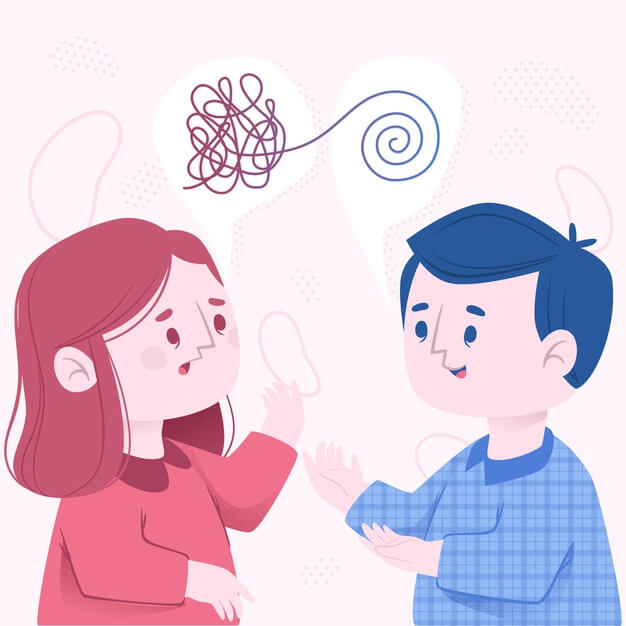
5. Understand That The Therapist/Counsellor Is Always There To Help You
Your understanding toward the therapist is important in the success of therapy. From day one you should understand this thing that the therapist is on your side. You both will have your own roles to play in the therapy. While you will play yours, the therapist will play his. So, trust the process and don’t think that the therapist is not there to support you. Also, they will offer you a safe space and full confidentiality.
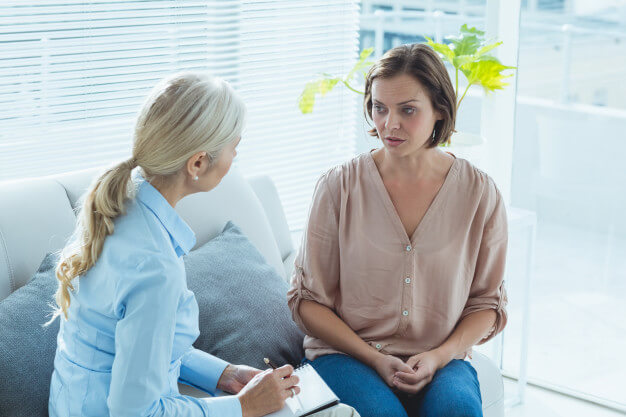
FAQs about the first therapy session
1. What to expect out of it during my first therapy session?
The first therapy session is just like a first date! It will be focused on rapport building and knowing each other better. So, your expectations from the first therapy session should be basic and simple. Your primary focus should be on smooth communication and offering each other safe, clean, and respectful space. This will further help your therapeutic relationship.
2. What questions will a therapist ask me in my first therapy session?
It is important to understand that each therapy is unique, each therapist is different, each client is different, and each process is unique in itself. So, there is no predefined set of questions that the therapist is likely to ask you. It completely depends on your area of concern and the specialty of the therapist. But, if you still want to get a basic idea about what questions a therapist is likely to ask here are the most common ones:
- Your basic demographic details.
- What prompted you to seek therapy or help?
- What major changes have you witnessed in the past few weeks or months (onset of the signs of discomfort)?
- What goals do you want to accomplish from the therapy (your basic expectations)?
And a lot many other questions, as there is a lot of ground to cover in initial appointments to work on the preceding ones.
3. How long will be my first therapy session?
Generally, different therapies work with different timelines. By taking an overall estimate, your first therapy session is likely to take place for 30-50 minutes. Although it completely depends on the therapy, your communication, and the therapist won’t take less than 30 minutes and more than 50 minutes (ideally). For more clarity please feel free to ask the therapist about the same.
4. Does anyone cry in the first therapy session?
Everyone experiences different emotions in their first therapy session and all of them are valid. A therapy room is your safe and confidential place so you don’t have to worry about expressing yourself. So, if you feel like crying in your first therapy session, feel free to express your emotions that way. It is completely fine to cry.
5. What if I am not happy with my first therapy session?
That’s completely fine! You might not feel satisfied with your first therapy session because of various reasons. But does that mean you should not visit the therapist again? No! In fact, give it another shot and communicate the hiccup points with your therapist so that you can work on it together. This will help you make the most out of the therapy.
However, if you still don’t feel right in the therapy you might switch your therapist. Just make sure to complete your journey of healing and don’t stop seeking help!
We hope that this mini-guide has helped to settle down your worries about the first therapy session. If you have any other question or concern popping in your head please drop it in the comments section we will surely answer it to make the process smooth for you.
If in case you want to connect with us at a personal level feel free to drop a mail on support@calmsage.com. We are always here for you.
Good luck with your journey towards a happier and healthier life.
More Relavant Articles:
Eating Disorder Online Support Groups and Where to find them
Will Online Therapy Program Work for You?
Best Online Marriage Counseling Programs To Revive The Relationship






